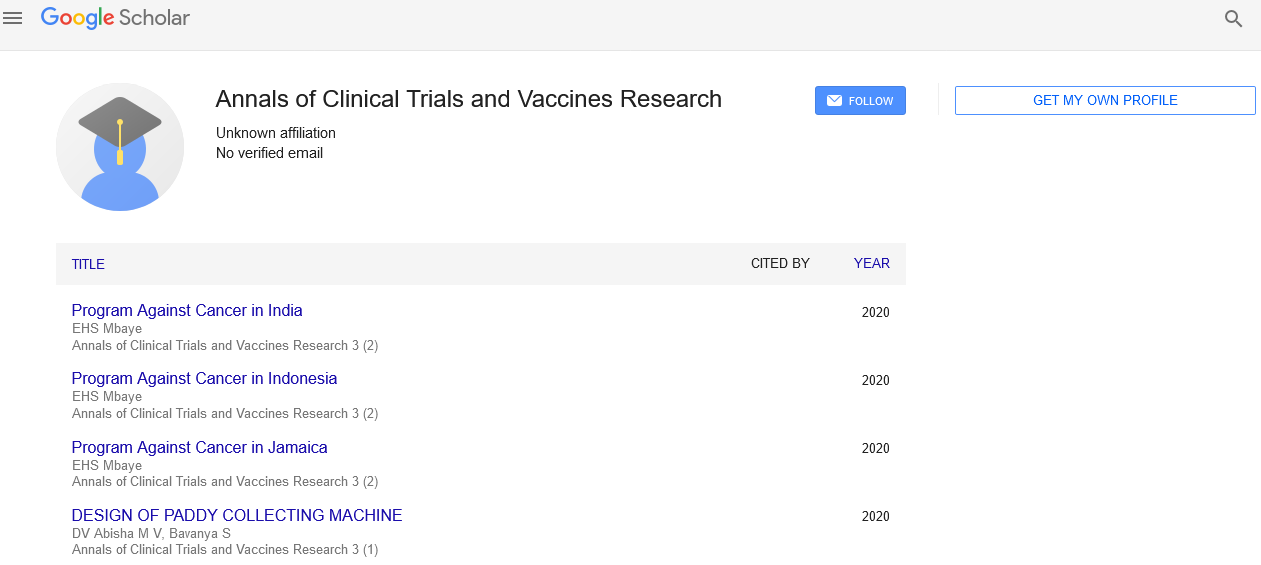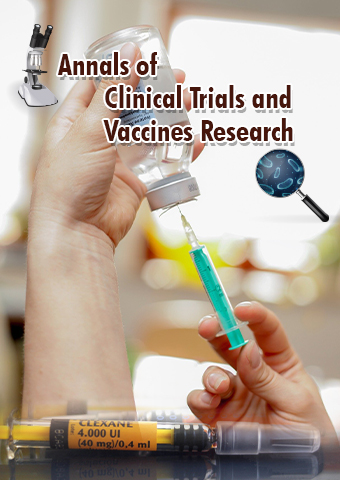Perspective - Annals of Clinical Trials and Vaccines Research (2024) Volume 14, Issue 4
Problems Faced by Physicians in Gene Therapy
- Corresponding Author:
- Lenda Bekkouli
Department of Biotechnology,
University of Alauca,
Alauca,
Honduras
E-mail: lenda@77gmail.com
Received: 16-Jul-2024, Manuscript No. ACTVR-24-141159; Editor assigned: 19-Jul-2024, Pre QC No. ACTVR-24-141159 (PQ); Reviewed: 02-Aug-2024, QC No. ACTVR-24-141159; Revised: 07-Aug-2024, Manuscript No. ACTVR-24-141159 (R); Published: 12-Aug-2024, DOI: 10.37532/ACTVR.2024.14(4).256-257
Introduction
Gene therapy represents a groundbreaking frontier in medical science, holding the potential to treat or even cure genetic disorders by introducing, removing or altering genetic material within a patient’s cells. While the promise of gene therapy is immense, the journey towards its widespread clinical application is fraught with significant challenges. Physicians working in this field encounter a variety of obstacles, ranging from technical and ethical issues to logistical and financial barriers. This article delves into the multifaceted problems faced by physicians in the realm of gene therapy, providing an in-depth exploration of the complexities involved in translating this innovative science into practical medical treatments.
Description
Technical challenges
Delivery mechanisms: One of the foremost technical challenges in gene therapy is the efficient delivery of genetic material to the target cells. Various delivery vectors, including viral and non-viral methods, have been developed, but each comes with its own set of problems.
Viral vectors: While viral vectors such as adenoviruses, lentiviruses, and adeno-associated viruses are highly efficient at delivering genes, they pose risks such as immune responses, insertional mutagenesis (which can lead to cancer) and limited carrying capacity for genetic material.
Non-viral vectors: These include methods like liposomes, nanoparticles, and electroporation. Although they are generally safer, they often suffer from lower efficiency and difficulty in targeting specific cell types.
Targeting and specificity
Achieving precise targeting of gene therapy to affected cells without affecting healthy tissues remains a significant hurdle. Off-target effects can lead to unintended consequences, such as disrupting normal gene function or triggering immune responses.
Stability and persistence
Ensuring the long-term stability and persistence of the introduced genetic material is crucial for the success of gene therapy. The genetic material must integrate appropriately into the host genome or be maintained in an episomal state without being degraded or lost over time.
Ethical and regulatory challenges
Informed consent: Gene therapy often involves complex and experimental procedures, making it difficult for patients to fully understand the potential risks and benefits. Physicians must navigate the ethical landscape of obtaining truly informed consent from patients or their guardians, ensuring that they are fully aware of the experimental nature and possible outcomes of the treatment.
Equity and access: Gene therapy is typically expensive and resource-intensive, raising concerns about equitable access. Physicians must grapple with the ethical dilemma of providing cuttingedge treatments to only those who can afford it, potentially widening the gap in healthcare disparities.
Regulatory approval: Navigating the regulatory landscape for gene therapy is a daunting task. The approval process for new gene therapies involves rigorous scrutiny by regulatory bodies like the FDA or EMA, requiring extensive clinical trial data to demonstrate safety and efficacy. This process can be lengthy and costly, posing a significant barrier to bringing new treatments to market.
Financial and logistical challenges
High costs: The development and administration of gene therapies are associated with extremely high costs. These include the expenses related to research and development, clinical trials, manufacturing and the need for specialized facilities and equipment. Physicians must also contend with the high cost of the therapies themselves, which can be prohibitive for many patients.
Reimbursement and insurance: Securing reimbursement from insurance companies for gene therapies is another major challenge. Many insurers are reluctant to cover such highcost treatments, leading to financial burdens on patients and healthcare providers. Physicians often find themselves advocating for coverage and navigating complex reimbursement processes.
Scalability: Scaling up gene therapy from experimental treatments to widely available therapies involves significant logistical challenges. These include the need for specialized manufacturing processes, maintaining stringent quality control and ensuring the consistent delivery of therapies across different healthcare settings.
Clinical and practical challenges
Patient selection: Identifying suitable candidates for gene therapy is a complex task. Physicians must carefully evaluate patients based on genetic factors, disease severity, and the likelihood of treatment success. This process often involves comprehensive genetic testing and counseling, which can be time-consuming and resourceintensive.
Monitoring and follow-up: Long-term monitoring of patients undergoing gene therapy is essential to assess the treatment’s efficacy and identify any adverse effects. Physicians must establish robust follow-up protocols, which can be challenging given the chronic nature of many genetic disorders and the potential for late-onset side effects.
Managing expectations: Given the high expectations surrounding gene therapy, managing patient and public expectations is critical. Physicians must communicate the realistic outcomes of treatment, including the possibility of partial or no improvement and the potential risks involved. This requires effective communication skills and the ability to provide balanced information without diminishing hope.
Psychological and social challenges
Psychological impact on patients: Undergoing gene therapy can be a psychologically taxing experience for patients, who may grapple with anxiety, fear, and uncertainty about the treatment’s outcomes. Physicians must provide adequate psychological support and counseling to help patients cope with these emotional challenges.
Societal perceptions and stigma: Gene therapy, especially when it involves genetic modification, can be a controversial topic. Physicians may face societal stigma and ethical debates surrounding the manipulation of human genes. Addressing these societal perceptions and engaging in public education is crucial to garnering broader acceptance of gene therapy.
Conclusion
Gene therapy stands at the cusp of transforming the landscape of medical treatment for genetic disorders, offering hope to millions of patients worldwide. However, the path to its widespread clinical application is riddled with challenges. Physicians at the forefront of this field must navigate a complex array of technical, ethical, financial and logistical obstacles. By addressing these challenges through technological advancements, ethical frameworks, collaborative efforts and patient-centric approaches, the potential of gene therapy can be fully realized, paving the way for a new era in medicine where genetic diseases can be effectively treated or even cured.

